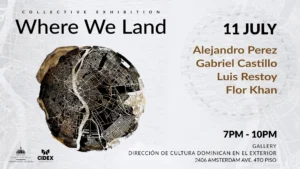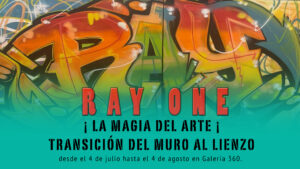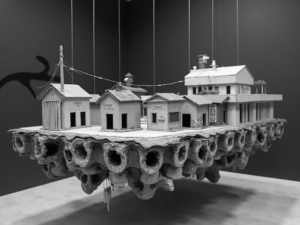By Juan Butten
Among the many jobs I had to do in the Dominican Republic to earn an honest living, one was working as a supervisor for an international moving company. At first, I thought I wouldn’t like it much, but I soon realized it wasn’t so complicated. Every morning from Monday to Friday, I would arrive at the company, where I was handed an order to go either to the capital or the interior of the country to deliver moves that came from all over the world.
What I am most grateful for from that experience is having had the opportunity to meet an author whom I had devoured with devotion since my youth. Without realizing it, I would enter his house and, moreover, spend a great time discussing Latin American literature, especially about Borges, Bosch, Onetti, and other Latin American authors who were so relevant during the boom years and beyond.
I remember it was a Tuesday afternoon when they told me I had to be at the company at 6 AM with seven men, along with the truck driver, to avoid traffic. So, we set out with the crew. Upon arriving at the company, Lucho, who at that time worked in customs and had already inspected the truck the day before, gave me instructions over the phone. He explained that the truck came from Spain, which I confirmed with the driver who handed me the documentation. Lucho told me: “What you’re about to face isn’t easy. It’s a 20-foot shipping container full of books, just books. These books need to be delivered and placed with the person in charge of the owner’s library.”
I thought it would be a delicate job and that it would take us days to place those books in some library in Juan Dolio, Dominican Republic.
However, everything turned out to be much easier than I expected. We unloaded the truck before 12 PM. The books came in small boxes marked with letters of the alphabet, and I even saw several boxes entirely dedicated to the works of Balzac. I told my colleagues to take a break, and the crew went to lunch while I stayed talking to a very friendly Peruvian lady who was in charge of organizing the library. I started talking to her about that book collection, and around 12:30 PM, the author of La ciudad y los perros, Mario Vargas Llosa, came out dressed in beige linen clothes. I was very surprised to see him, but I tried to stay as calm as possible. I thought that the more normal I acted, the better it would be to talk to him, and that’s exactly what happened. That day, I started talking to a genius, a giant of literature, who I didn’t know was so kind and gentle.
As I’m a curious person, I told him that I had greatly enjoyed reading Travesuras de la niña mala, but that, without a doubt, my favorite of all his books that I had read was La guerra del fin del mundo. While I was talking to him, I felt such a natural kindness that it seemed I wasn’t talking to Vargas Llosa, the great writer who had not yet received the Nobel, but who many, like me, believed deserved it since Conversación en la catedral. He was a serene, smiling man, and while I was talking to him about one of the boxes the Peruvian lady had opened, he took a book from a little table beside a chair.
The lady asked me about a box labeled with a “D” on a yellow tag. I looked to the right side of the entrance and saw dozens of hippos in different shapes, colors, and sizes. Then I saw him again, sitting on a brown leather chair, taking another book from the table. It was a hardcover book, and he brought it close to his nose, smelling it as if he were enjoying the scent of new books.
A young house assistant told him he had a phone call. Vargas Llosa got up from the chair, looked at me, smiled kindly, and walked toward one of the rooms. I stayed alert to make sure everything went smoothly. Then, the guys arrived to place all the books in their proper spots. I started thinking about something my mother always told me: the most brilliant people are usually humble. I was in the presence of a literary rock star, the most generous I’ve ever met in my life.
Around 7 PM, we finished placing all the books in their place. We were about to head to Santo Domingo, and when we were getting ready to leave, Vargas Llosa came out to check how everything had turned out. He smiled, thanked us, and all the way to Santo Domingo, I was very happy. I had met someone I admired deeply for his work and had the chance to talk about literature as if I were with a friend, a friend whom I still occasionally read with much enthusiasm and joy.
And even more so because, on March 28, 2025, Mario Vargas Llosa will celebrate his 89th birthday, a milestone in the life of one of the most important writers in contemporary Spanish-language literature. This month, two biographies of the Nobel Prize winner will be published: one by Pedro Cateriano and another by Alonso Cueto. These books review the life of the author, who will be remembered not only for his literary work but also for his active defense of human rights. Throughout his career, Vargas Llosa has become a reference in Hispanic letters and a key figure in the fight against dictatorships and in the promotion of democracy.
Happy Birthday, Don Mario.









